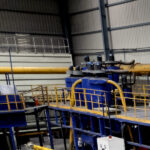Delhi’s Air Quality Remains ‘Poor’ Despite Cloud Seeding Trial

Pilot cloud seeding fails to bring immediate relief as pollution levels remain high across Delhi and NCR
Delhi’s air quality showed little improvement on Wednesday morning, remaining in the ‘poor’ and ‘very poor’ categories despite an artificial rain experiment conducted over several parts of the city a day earlier.
According to the Air Quality Early Warning System, the capital recorded an overall Air Quality Index (AQI) of 275 at 5.30 am, placing it in the ‘poor’ bracket. The temperature at the time was 18.8°C.
Pollution levels stayed high across the city, with Wazirpur registering the worst AQI at 327, followed by Siri Fort (326), Bawana (320), and Rohini (320). Other severely affected areas included Mundka (315), Vivek Vihar (309), and R K Puram (308). Stations such as Anand Vihar, ITO, and Dwarka also reported readings in the ‘very poor’ range.
The cloud seeding trial, carried out on Tuesday, aimed to test artificial rain as a tool to reduce airborne pollutants and improve atmospheric conditions. Environment Minister Manjinder Singh Sirsa confirmed that the operation was conducted over regions including Khekra, Burari, North Karol Bagh, Mayur Vihar, Sadakpur, and Bhojpur.
A special aircraft from Kanpur dispersed silver iodide particles into moisture-bearing clouds to stimulate rainfall. The exercise marked the first such attempt in the National Capital.
Chief Minister Rekha Gupta said the initiative reflected the government’s efforts to explore innovative methods to tackle Delhi’s worsening air pollution. “This is an experiment. If successful, it can provide an important solution for Delhiites,” she said.
Experts, however, remained cautious about its impact. They noted that cloud seeding could offer only temporary relief and is dependent on favourable weather conditions. A senior official from the Ministry of Earth Sciences observed that such operations are less effective in the post-monsoon and winter months due to a lack of mature cloud systems.
Neighbouring cities in the National Capital Region also recorded unhealthy air, with Noida reporting an AQI of 310 and Greater Noida at 289.
Officials said data from Tuesday’s trial will be reviewed before any decision is taken on conducting a larger-scale artificial rain operation in the coming weeks.












































































































































































































































































































































































































































































































































































































































































































































































































































































































































































































































































































































































